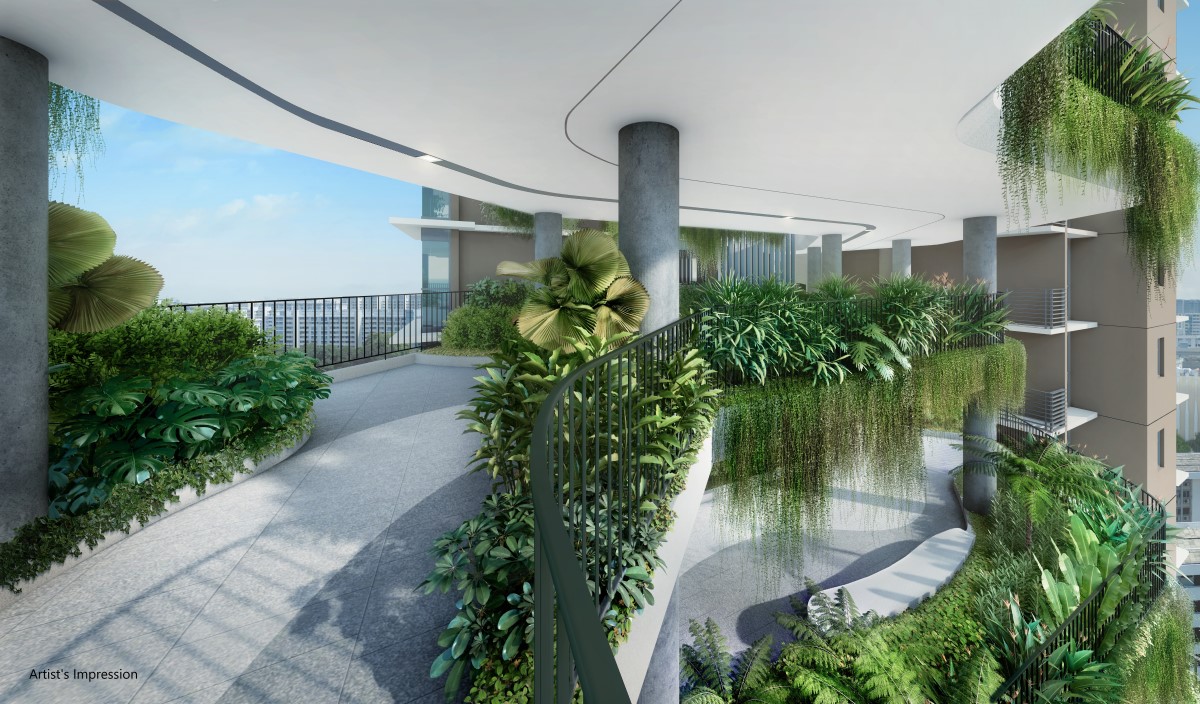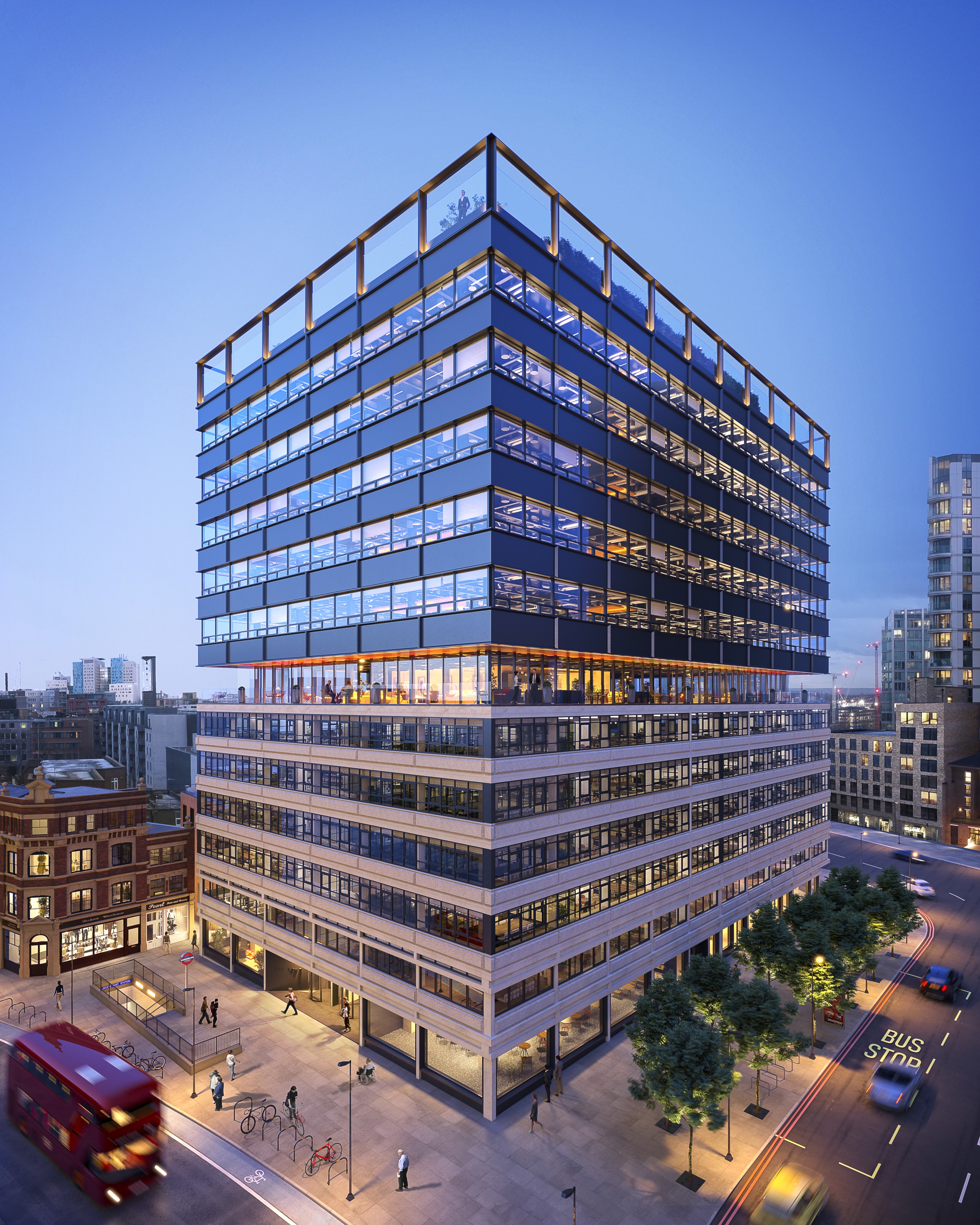20 Oct 2022
A tall order? Net-zero carbon target in the building sector achievable only with collaboration

Artist's Impression: Cascading Sky Garden at Sky Eden@Bedok, our upcoming mixed-use development located in the heart of Bedok Central in Singapore
With less than a month to go before the 2022 United Nations Climate Change Conference (COP27) in Egypt, strides have been made across many sectors to collectively support the target of keeping the global rise in temperatures to 1.5 degree Celsius, in line with the Paris Agreement made at COP21 in 2015.
Partnerships have proven to be critical in climate action, which comprises the harmonisation of data collation and measurement, implementation of sustainable innovation, and scaling up of solutions and interventions to achieve greater impact, among others.
In September, Singapore announced its first steps towards making its 2050 net-zero carbon emissions target that include a public consultation. Having recognised the increasing significance of partnerships since Frasers Property started its sustainability journey over a decade ago, Group Chief Corporate Officer Chia Khong Shoong shares his views on the progressive action the real estate sector could take to achieve net-zero carbon emissions:
Consultation and Collaboration for Net-zero Carbon
Singapore has set a net-zero carbon emissions target by 2050 and sought public consultation in September 2022.
This development is very timely. The nation’s net-zero journey resonates with ours at Frasers Property, as we have set a similar target for the Group.
For our business in Australia, we are targeting net-zero from 2028. As a multinational real estate company, we are trying to ensure that learnings from our more advanced markets are shared and adopted where viable.
This decarbonisation journey is however not without its many challenges.
Scopes 1, 2 and 3 Emissions in the Real Estate Sector
According to the UNEP, the building and construction sector accounts for almost 40 percent of all energy-related carbon dioxide emissions.
Emissions are categorised into Scopes 1, 2 and 3, contextualised in the building sector as follows:
- Scope 1: Managing direct emissions from the company’s operations.
- Scope 2: Managing emissions from upstream sources of the company.
- Scope 3: Managing emissions from across the value chain, including building tenants, contractors, logistics, use of capital goods and services purchased, and so on.

The Rowe, London – An upcoming development that will run on 100% renewable electricity and see a carbon emission reduction of 45% compared to a standard office building.
Scope 3 constitutes the lion’s share of total emissions, and we acknowledge that tracking, managing and assessing such emissions require wider and more transparent timely disclosures.
Sustainability is a positive sum game and requires a whole-of-society approach.
As the first SGX-listed real estate company to fully incorporate Scope 3 emissions as part of our net-zero target, we recognise partnerships are necessary to effectively reduce Scope 3 emissions. Partnerships provide the latitude for the progressive iteration of ideas and the adoption of key learnings.
Partnerships and Harmonised Standards
We also need to adopt common definitions and science-based standards for net-zero, and this also includes accounting for and reporting on Scope 3 emissions, a challenging endeavour due to the evolving nature of carbon accounting. The government and industry thus play an important role in harmonising and normalising common disclosure standards.
We may not have all the answers for now, but we are certain we can learn a lot along the way.
The next step is to explore ways to intensify private-public partnerships to catalyse more ideas and strengthen efforts towards climate-positive outcomes. This is why we also welcome others to collaborate with us on our decarbonisation journey. When we focus on partnerships that include a range of stakeholders such as suppliers, customers, peers and industry associations, we are better positioned to create new business models and solutions to unlock new sources of value in relation to our ESG goals.
The net-zero carbon target in the building sector may appear a tall order, but with meaningful collaboration and sustained concerted action, we can collectively move the needle and tangibly contribute to Singapore’s overall net-zero target.
